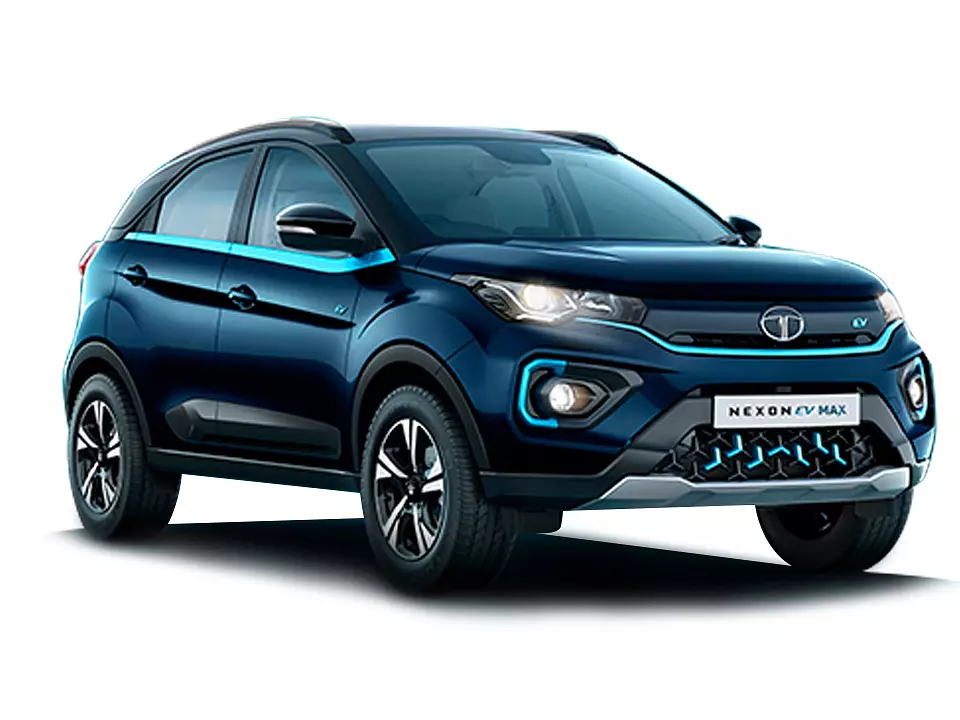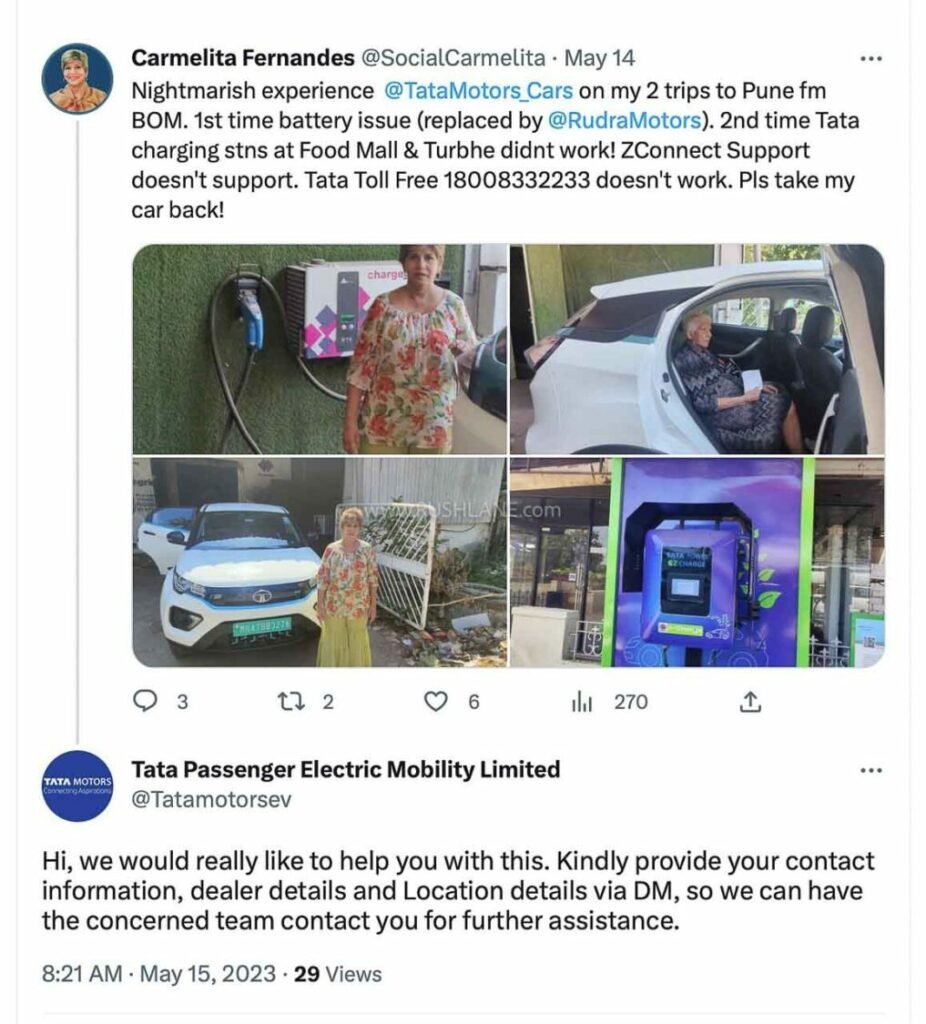The challenges faced by electric vehicle (EV) owners in India are on the rise, not limited to Tata Motors’ Nexon EV but reflecting the overall state of EVs in the country. A Nexon EV owner named Carmelita Fernandes recently voiced her grievances on social media, expressing her frustration with Tata Motors’ service and even requesting them to take back her Nexon EV. This incident highlights the issues prevalent in the relatively young Indian EV market, including the lack of necessary charging infrastructure.
As Tata Motors is the largest EV manufacturer in India, such cases involving their vehicles are more common, similar to how Maruti Suzuki car accidents are more frequent due to their higher sales volume. These challenges are not exclusive to Tata but apply to EVs in general.

Carmelita Fernandes shared her experience on Twitter, citing multiple issues with her Nexon EV during two trips from Mumbai to Pune, a distance of approximately 160 km.
While the Nexon EV Prime promises a range of 312 km on a full charge, the hilly terrain of Lonavala consumes a significant amount of battery power while ascending, with limited energy recovery during descents. This necessitates the recharging of Nexon EVs in Pune. However, India’s charging infrastructure is still in its early stages, and charging stations often fail to work as expected.

Carmelita Fernandes mentioned that the charging stations at Turbhe and Food Mall did not function at all. She also encountered battery issues, which were replaced under warranty by Rudra Motors in Wagholi, Pune. Additionally, she expressed dissatisfaction with Tata’s ZConnect Support for not providing any assistance and highlighted that the company’s toll-free number (18008332233) was non-functional.
Despite monthly sales of electric cars surpassing 5,000 units, the growth of charging infrastructure remains sluggish. Consequently, the prospect of EVs in India is still primarily limited to tier 1 or tier 2 cities. For intercity and long-distance journeys, EV owners need to carefully plan their trips in advance to account for charging limitations and ensure a smooth experience.
Also Read:


